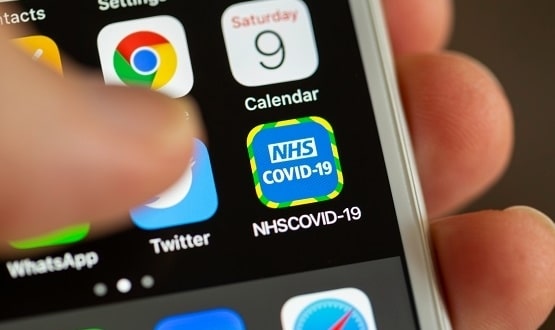Quicker access to a contact-tracing app would ‘bolster’ Test and Trace
- 27 August 2020

Quicker access to a contact-tracing app would have “bolstered” NHS Test and Trace but it isn’t a “silver bullet” solution, a privacy expert has said.
Polly Sanderson, policy counsel at Washington-based think tank Future of Privacy Forum, told Digital Health News the Test and Trace system would likely operate better with an “integrated” technological solution.
“I think if it [the app] were better integrated with the system it could be used not only for the exposure notification functionality, but also for following up with individuals who have already been identified manually,” she said.
“It could be used to alternate notifications, to remind them to log their symptoms, or to check in and ask if they’ve developed any symptoms and to stay on top of the leads that manual contact-tracers have.
“I think finding technological solutions for this can really improve the accuracy and efficiency of manual contact-tracing efforts.”
Latest figures from NHS Test and Trace show only 71.3% of close contacts of those tested positive for Covid-19 were able to be reached and asked to self-isolate, down slightly from the week before.
That leaves almost 30% of those potentially exposed to the virus unaware they need to isolate or potentially get tested.
‘Not a silver bullet’
Trial data for the new version of the app shows it has a “false positive” rate of 45%, meaning almost half of the contacts identified as being a close contact of someone with the virus don’t actually meet the criteria.
Tests also revealed that for every 10 cases that should be detected three are missed.
Sanderson, who previously worked on privacy and data security as a Google Public Health Fellow, said the figures “concerned” her slightly but added the app alone isn’t going to be a “perfect solution”.
“The value of the app is that it fills in some of the blind spots that manual contact-tracing simply cannot reach, but it has its own blind spots as well,” she said.
“The hope would be that it would cover more of those interactions with strangers in order to identify more people.
“Overall, it gives a clearer picture and more complete dataset, but again this is no silver bullet solution and it needs to be integrated a much broader strategy to combat Covid-19.”
The app’s developers hope to improve the accuracy of the technology in its next updates.
U-turn was the ‘right approach’
Sanderson, whose career begun as a policy intern for a UK government department, said the decision to abandon the NHSX version of the app for Apple and Google’s model was not surprising given the privacy concerns raised with the initial centralised model.
“I think that moving to the new app is the right approach,” she said.
“It’s a good thing that they piloted the other app so that they could see how ineffective it was and could test the technical limitations before rolling it out to the rest of the country.”
Future of Privacy Forum is a not-for-profit organisation bringing together industry, academics, consumer advocates and thought leaders to explore challenges posed by new technology, and develop privacy protections within these innovations. During the pandemic it has tracked and analysed global responses to Covid-19, including contact-tracing apps and legislation.
Looking at the UK’s response compared to global counterparts, Sanderson said that switching to Apple and Google’s exposure notification system would bring interoperability benefits.
“A lot of countries in the EU and, increasingly, in America are thinking about, or have implemented, the Google and Apple based approach,” she said.
“I think that, especially as the country is re-opening and people are hoping to cross to neighbouring countries in Europe, the value of having an interoperable app is really essential.
“It would have been better if the government had recognised that earlier on.”
The contact-tracing app was planned as an integral part of the Test and Trace system, which Prime Minister Boris Johnson said would be “world-beating” prior to its launch.
But when the programme was launched in May it was without the app, which was later abandoned in June due to technical failings.
The government began public testing of a new-look version of the app on 13 August.
Sanderson had previously told Digital Health News the proposed centralised version of the app was based on the “shaky assumption” that self-reporting of symptoms is epidemiologically better, which “serious issues”, including data poisoning.
Along with other experts globally, she warned there are “inherent risks” of data breach with a centralised model, including re-identification.
Speaking to Digital Health News following the launch of trials for a revamped version of the app, Sanderson said her concerns were allayed.
“The UK has tried to do the right thing and has come out with the right approach at this point,” she said.
“Other countries have stayed with faulty solutions that are now just not functioning.”
To find out more about the NHS contact-tracing app, and the setbacks it’s faced since March, have a look at our app timeline piece here.




